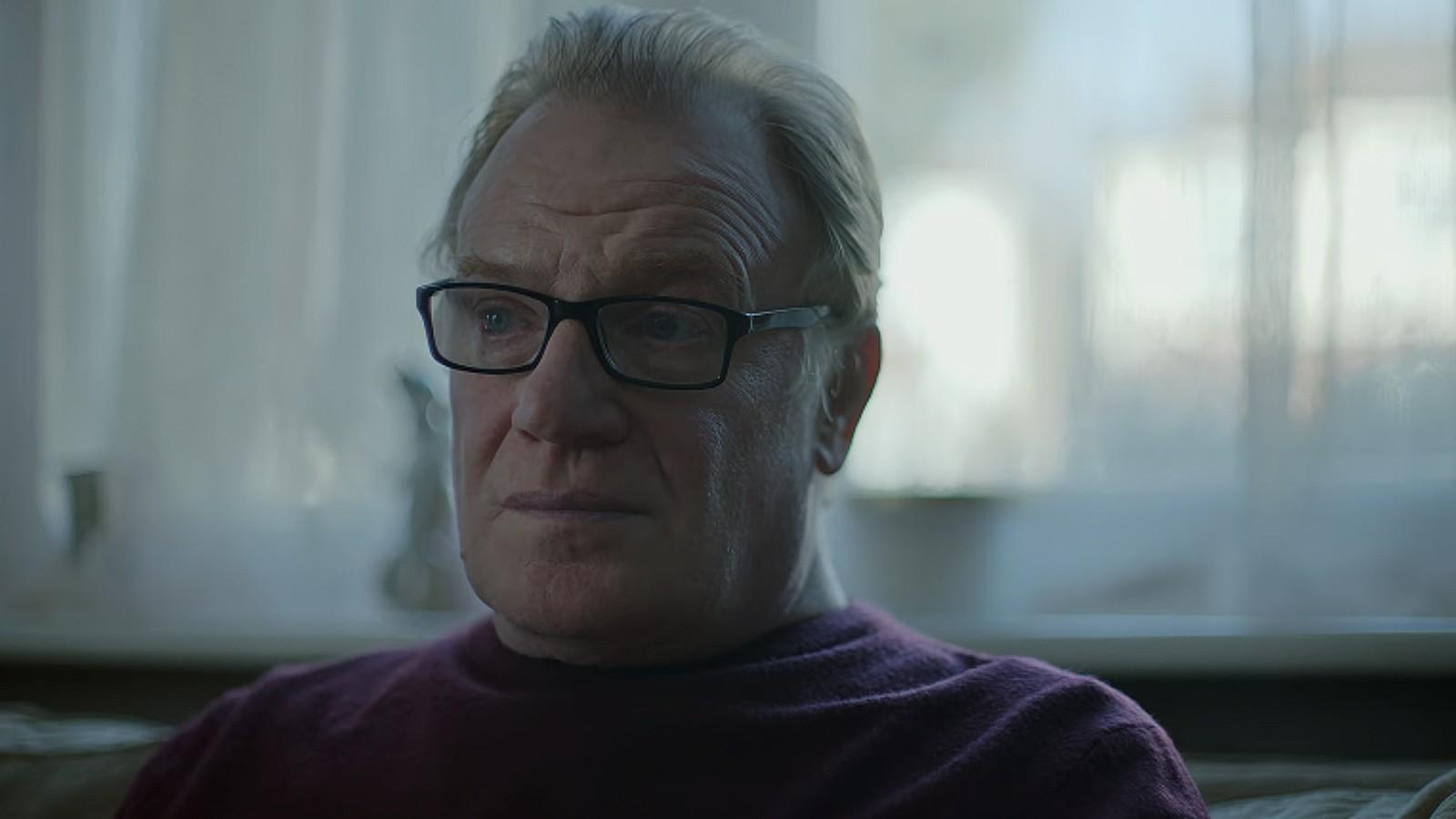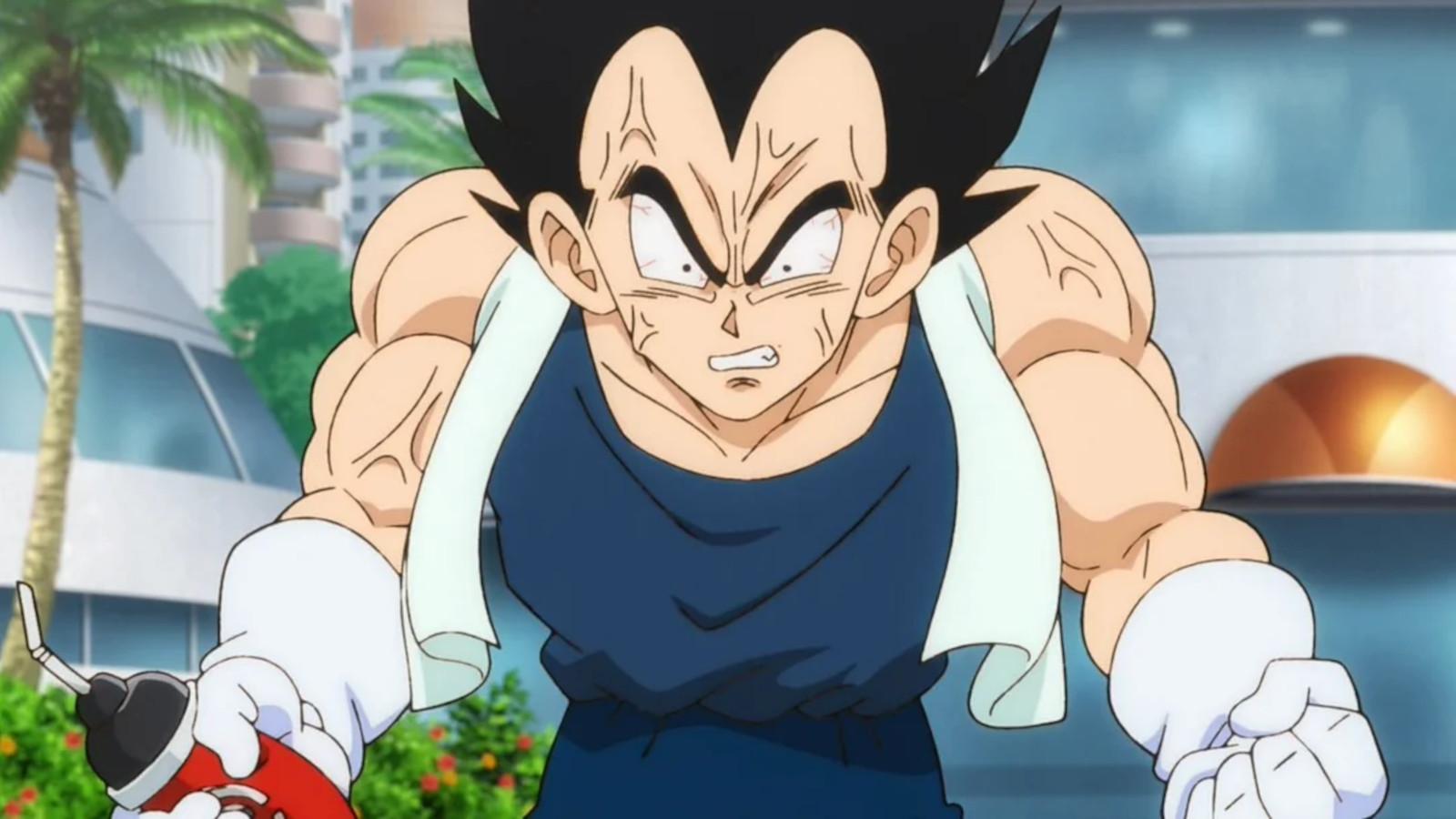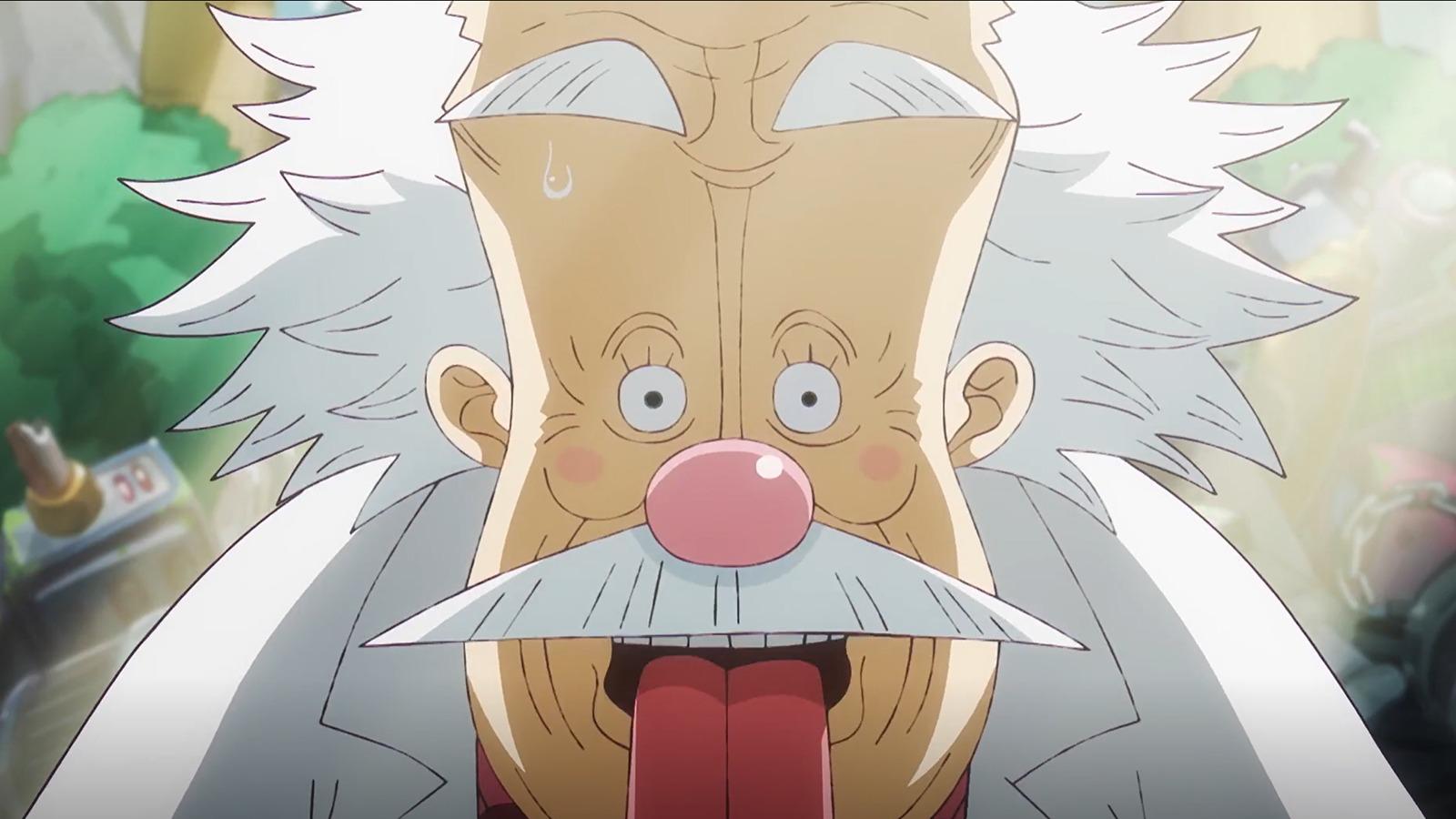How The Black Phone “steered around” Stephen King’s It
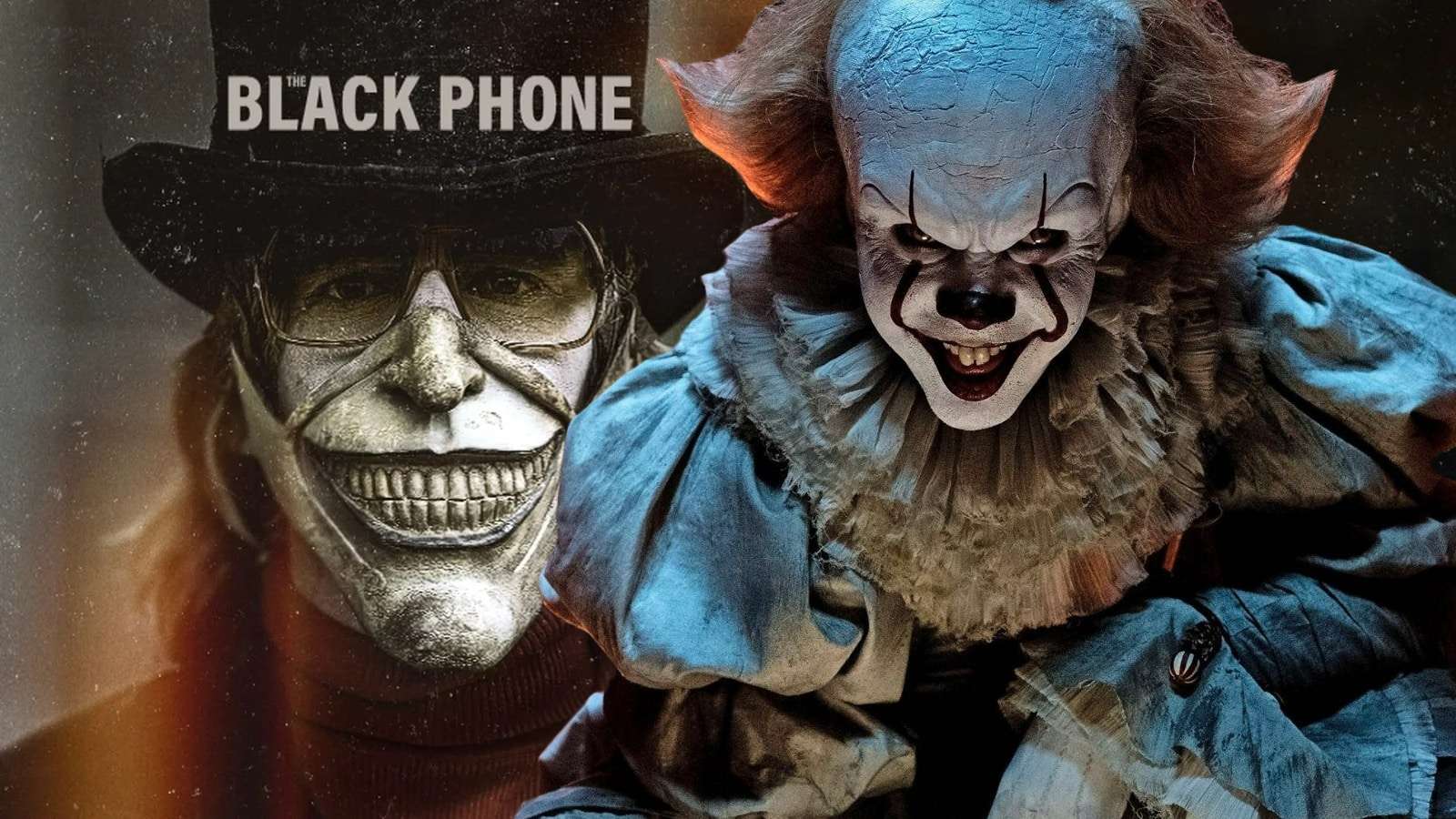 Universal/Warner Bros.
Universal/Warner Bros.The Grabber and Pennywise.
New horror movie The Black Phone hits screens this week, and the film’s journey from book to script to screen has been fascinating. Based on a short story by Joe Hill – the son of Steven King – screenwriter C. Robert Cargill explains how he had to “steer around” King classic It, and also reveals why he was initially hesitant to adapt the work.
C. Robert Cargill collaborated with writer-director Scott Derrickson on horror hit Sinister, as well as Marvel blockbuster Doctor Strange. Their latest scary movie has had an unusual genesis, being a combination of two unique and initially disparate ideas.
It all started when Derrickson read a collection of short stories by Joe Hill entitled 20th Century Ghosts. He saw potential in The Black Phone – about a boy imprisoned in a room by a clown, with only a phone for company – and immediately called Cargill.
Speaking to Dexerto from his home in Austin, Texas, Cargill explains: “I read it and went, “There’s a lot missing here. There’s no first act at all, there’s no character here, it’s a great short story, but we have other ideas that we’re kicking around, and I feel like putting our juices towards original ideas that we own.”
Cargill continues: “He agreed. But every few years it would come up again. And it would be one of those things where we’d be like, “What about Black Phone?” but it was never the right time.”
The evolution of The Black Phone
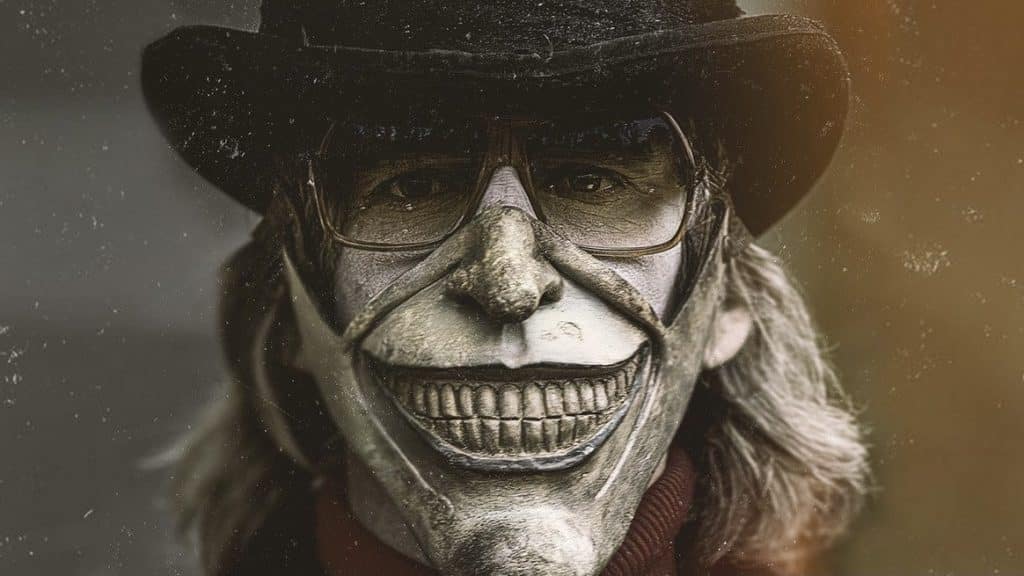 Universal Pictures
Universal PicturesThe right time wasn’t far away however. Cargill continues: “Me and Scott were having a conversation one night over a bottle of whisky. He was talking about how he had been going through therapy and wanted to make a 400 Blows-style film about his childhood, and would I be interested in working with him on that? I said, “Hell yeah, of course, I’ll work on anything with you.”
“Then we started kicking around Black Phone, and in that conversation we said, “What if we fuse these two things together and take this trauma from your childhood – the f**ked up neighborhood you grew up in – and make that the first act?”
“Once we had those two pieces – we had ’70s Denver; these profound memories Scott had from childhood, and this great story by Joe – all of a sudden it’s like “That’s a movie, and now we need to fill in the blanks.”
“So that’s the creation of Gwen and the additional kids and the mechanics of attempting to escape and the evolution of The Grabber. But we had the core of a movie – something about the resilience of youth, set in Joe Hill’s wonderful story. From then on it was just about the mechanics of storytelling.”
The influence of Stephen King’s It
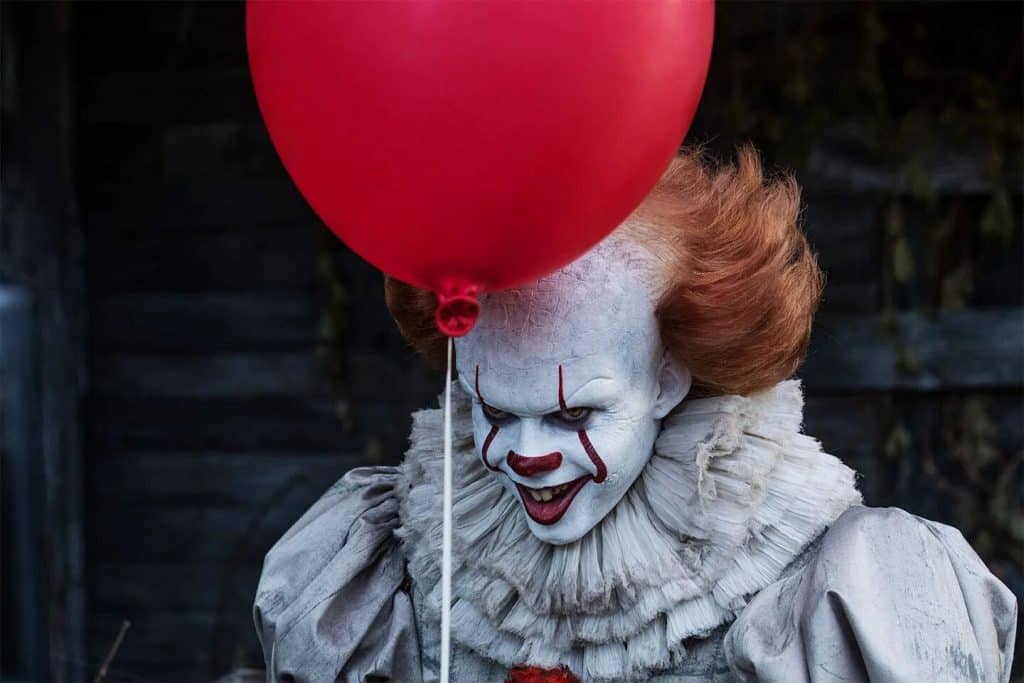 Warner Bros.
Warner Bros.Being a horror writer who also happens to be the son of the greatest horror writer ever means that the subject of Stephen King often rears its head when discussing Joe Hill’s work. The Black Phone was no different.
“It’s impossible to escape the Stephen King gravity of this whole thing considering it was written by his son, and his son grew up in a house obsessed with storytelling,” explains Cargill. “We made a film about kids subjected to horror which is very much considered a Stephen King thing. That stuff is in my DNA so it’s impossible to say, “No, no, no, Stephen King has nothing to do with this.” Of course he does. But not in a way that we were saying, “Let’s do this like Stand By Me or It.” It was just we grew up with these films from this era, and we’re making something like it.
- Read More: 10 great clown movies
“Usually when Scott and I do stuff we try to avoid direct influences and try to steer around them… in this case, one of the big things we had to steer around was It. When we first gave the script to him, Joe loved it. He was over the moon. But then he was like, “When I wrote this story 15 years ago my Dad’s book It had been out for over 20 years and clowns weren’t a big deal, but now It has been remade, the character being a clown will feel too much like we’re borrowing so can we change that?” and we were like, “Of course we can, but to what?””
Turning a clown into a magician
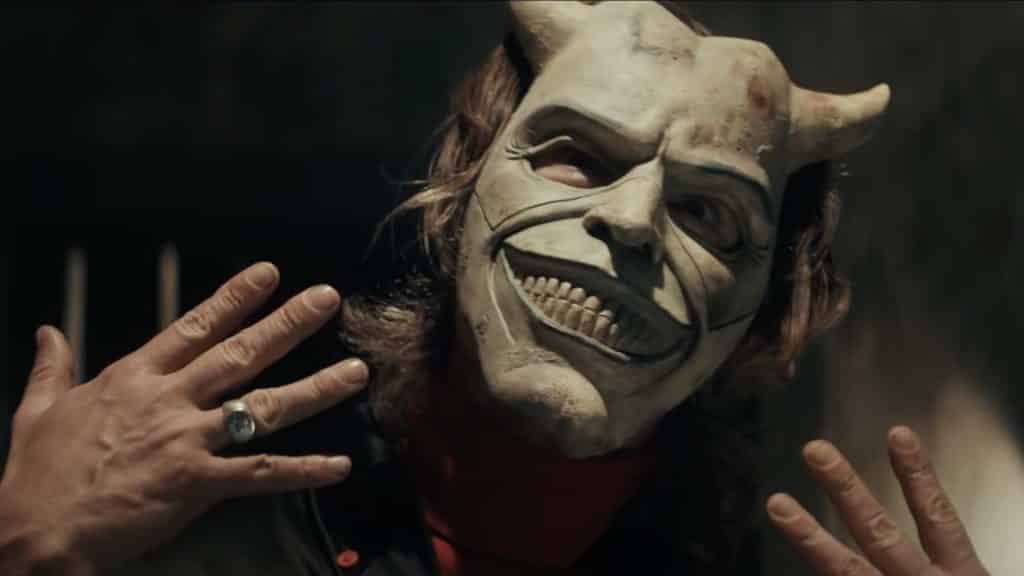 Universal Pictures
Universal PicturesLuckily for Cargill and Derrickson, Joe Hill already had a replacement in mind.
As Cargill explains: “Joe said, “Well I’ve always been obsessed with the idea of an old-school magician who did a duel act where he was dressed for half the act as the magician, then he was dressed like the devil. Can we do something like that?”
“We were like, “Yeah, that’s really cool, that’s much better, let’s do that.” Which led to the evolution of Scott coming up with masks, and the film became better as a result of trying to avoid being like It.”
The Black Phone is in UK cinemas tomorrow, and hits US screens on June 24.
